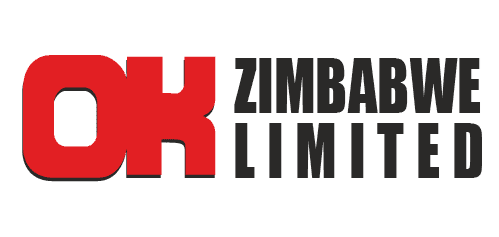POSB seeks to raise US$10m through IPO
PEOPLE’s Own Savings Bank (POSB) says it seeks to raise US$10 million through Initial Public Offering and private placement as it moves to realise its partial privatisation agenda.
POSB is one of the state entities earmarked for partial privatisation by the Government and now intends to list on the Zimbabwe Stock Exchange (ZSE).
The Government controls 100 percent shareholding in POSB, which is currently undergoing processes to open up ownership to the private sector under the privatisation project.
The bank has since engaged KPMG Advisory Services to provide transactional advisory services as the banking institution makes strides to recapitalise.
POSB has in the recent past been hinting at concluding its partial privatisation project promptly in tandem with the Government’s parastatal reforms agenda that is guided by the Short to Medium Term Reform Framework (SEPs-SMTRF).
The bank presented the final partial privatisation strategy document to the Minister of Finance and Economic Development, Professor Mthuli Ncube, who has granted them the green light to engage potential investors as the privatisation roadmap progresses.
Making his presentation during the ninth annual general meeting held on Tuesday, POSB chief executive officer, Garainashe Changunda, said the bank was moving towards creating improved shareholder value.
“Looking at shareholder value creation from a partial privatisation point of view, we would like to advise stakeholders that, we received guidance regarding the privatisation strategy of the bank from the Ministry of Finance and Economic Development, in that regard approval to engage potential investors was granted. So we look forward to the bank raising US$10 million through an Initial public offering and private placement.
“To date, the consultant tasked with privatisation of POSB has submitted a draft for Expression of Interest (EOI) which is currently being reviewed before publication, we also extended the consultancy contract to 21 March 2024 to allow for the completion of our standing work streams. We are open to offers from likeminded investors who can help the bank to achieve its vision,” said Changunda.
The Government says it will this year be prioritising the parastatal reforms agenda guided by the Short to Medium Term Reform Framework (SEPs-SMTRF) and the National Development Strategy 1 (NDS1) as it strives to moderate the enterprises’ load on the fiscus and promote efficiency.
However, at the AGM, Government as a major stakeholder, noted concerns over the delay in progress on the privatisation agenda of the bank.
Acting POSB chairman, Isaac Ndlovu, said the bank expects the privatisation process to end this year.
“At the time of preparing this report, the consultants were in the process of attending to the outstanding work streams and deliverables, which include the Minister’s request.
“It is anticipated that the partial privatisation project will be concluded by the end of the year 2023,” said Ndlovu.
Mthuli is on record saying the privatisation issue for selected SOEs should be finalised.
“Drawing lessons from the successes and challenges faced in implementing the SEPs-SMTRF since 2018, it is envisaged that the state enterprises reform priorities for 2023 will be guided by the completion of the ongoing reforms,” said Mthuli.
POSB managed to declare a dividend of $115 million for the 2022 financial year after generating approximately 50 percent revenue in foreign currency as it sought to future proof the bank’s balance sheet.
In terms of performance, POSB recorded a net profit of $2,34 billion in inflation-adjusted terms during the 2022 financial year to 31 December.
Net operating income for the year to December 2022 grew 74 percent in inflation-adjusted terms to $19 billion credited mainly to growth in transaction volumes and values.
Operating expenses surged 93 percent to $14,60 billion in inflation-adjusted terms from $7,56 billion recorded for the year 2021 driven mainly by the general rise in prices due to inflationary pressures.
According to Changunda; “The bank attained an overall performance rating of 4,14 out of 6 in the 2022 financial year.”
For the six months to June 2023, POSB posted a net profit of $63,69 billion against a budgeted profit of $3,19 billion.
It also witnessed an improvement in net operating income due to growth in transaction volumes despite the significant increase in the exchange rate to $6 326,59 against US$1 in June 2023, from $671,5 to US$1 in December 2022.
However, according to POSB acting Chief Finance Officer, Maria Gunde, the operating expenses were above budget by 53 percent despite implementation of cost containment measures.
“The increase was mainly attributed to a general rise in prices brought about by inflationary pressures,” said Gunde.
POSB, however, remains well capitalised with a capital adequacy ratio of 62 percent and 46 percent as of December 31, 2022 and June 30, 2023 respectively.-ebusinessweekly










